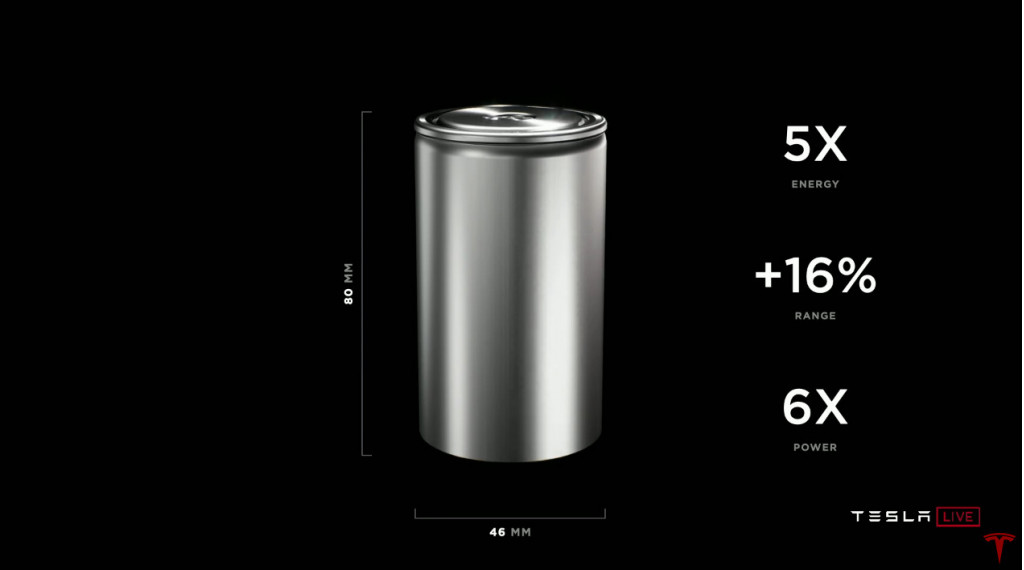Tesla Model Y electric crossovers built at the automaker's new Texas factory will use new 4680-format cells, as opposed to the 2170-format used in versions of the Model Y currently made at the automaker's Fremont, California, factory.
First spotted by InsideEVs, Tesla CEO Elon Musk confirmed this in a Twitter exchange Tuesday. When asked if Tesla would start producing the Model Y in Austin using 2170-format cells, or jump straight to 4680-format cells, Musk replied "4680."
Tesla presented the 4680-format cells at its Battery Day last year, but it hadn't then produced any significant volume of them. In April, Musk indicated volume production was 12 to 18 months away.
Regardless, Tesla is banking heavily on the new format, claiming it will lead to cost reductions without high-speed charging or thermal-management penalties. The difference is the larger size—46 millimeters wide by 80 millimeters long—up from 21 millimeters wide by 70 millimeters long for the 2170-format cells in the Fremont-built Model Y.

Future Tesla cell will make energy, power gains
The larger cells may even be what finally gets the long-delayed Tesla Semi into production. Tesla has said that its modest ramp-up of 4680 cells so far will enable Semi deliveries by the end of the year. The truck was unveiled in 2017, and Tesla has been taking reservations since then.
Tesla is also expected to use 4680-format cells in the Cybertruck, which will be built alongside the Model Y in Texas, as well as the high-performance Model S Plaid.
Other companies are investigating larger, more energy-dense battery cells as a solution to improving EV performance. LG Chem is reportedly looking to build Tesla-style 4680-format cells beginning in 2023, possibly at a United States factory.
However, current Tesla battery supplier Panasonic isn't sold on the format. In an interview with Bloomberg earlier this year, Yasuaki Takamoto, the company's EV battery boss, said bigger cells would be harder to produce and are more prone to overheating.












